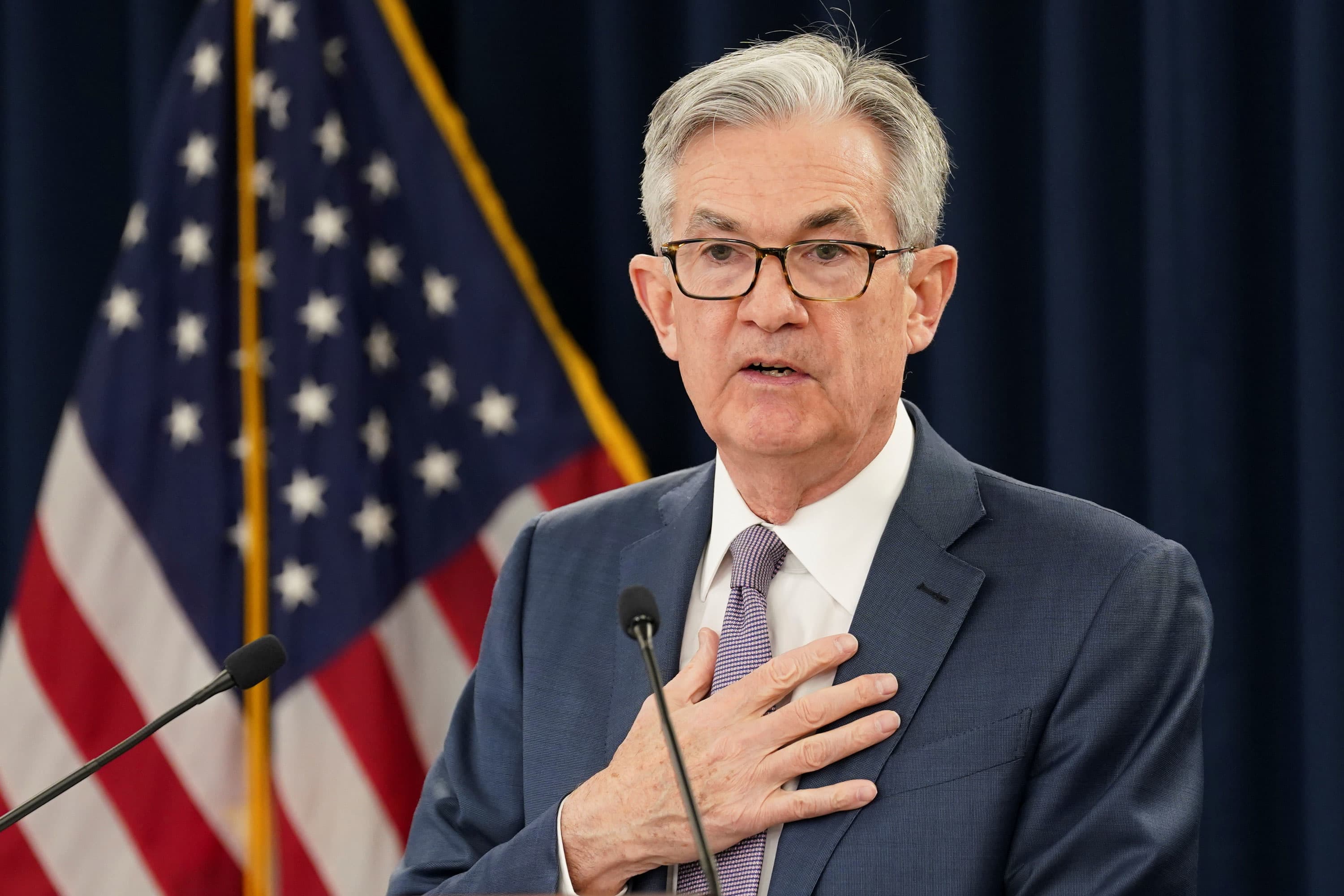The Federal Reserve said Monday it will launch a barrage of programs aimed at helping markets function more efficiently amid the coronavirus crisis.
Among the initiatives is a commitment to continue its asset purchasing program "in the amounts needed to support smooth market functioning and effective transmission of monetary policy to broader financial conditions and the economy."
That represents a potentially new chapter in the Fed's "money printing" as it commits to keep expanding its balance sheet as necessary, rather than a commitment to a set amount.
The Fed also will be moving for the first time into corporate bonds, purchasing the investment-grade securities in primary and secondary markets and through exchange-traded funds. The move comes in a space that has seen considerable turmoil since the crisis has intensified and market liquidity has been sapped.
Markets initially reacted positively to the moves but headed back lower in early trading, with the Dow Jones Industrial Average down 260 points.
Other initiatives include an unspecified lending program for Main Street businesses and the Term Asset-Backed Loan Facility implemented during the financial crisis. There will be a program worth $300 billion "supporting the flow of credit" to employers consumers and businesses and two facilities set up to provide credit to large employers.
There are no details yet on the Main Street program, with a news release saying it will help "support lending to eligible small and-medium sized businesses, complementing efforts by the SBA."
The Fed also said it will purchase agency commercial mortgage-backed securities as part of an expansion in its asset purchases, known in the market as quantitative easing. The move represents an expansion into the commercial sector of real estate for the central bank's acquisitions.
"We are now in QE infinity, again," Peter Boockvar, chief investment officer at Bleakley Advisory Group, said in a note.
Additional measures include the issuance of asset-backed securities backed by student loans, auto loans, credit card loans, loans guaranteed by the Small Business Administration and certain other assets.
The moves come on top of programs the central bank announced last week aimed at easing the flow of credit markets and the short-term funding banks need to operate. The Fed said it will expand its money market facility announced last week to include a wider range of securities that it will accept.
"The coronavirus pandemic is causing tremendous hardship across the United States and around the world. Our nation's first priority is to care for those afflicted and to limit the further spread of the virus," the Fed said in a statement. "While great uncertainty remains, it has become clear that our economy will face severe disruptions. Aggressive efforts must be taken across the public and private sectors to limit the losses to jobs and incomes and to promote a swift recovery once the disruptions abate."
Monday's announcement represents the most aggressive market intervention the Fed has made to date.
Previously, it had announced it would buy $500 billion worth of Treasurys and $200 billion in mortgage-backed securities. The new move represents an open-ended commitment to the QE program.
"Fed policy is shifting into a higher gear to try to help support the economy which looks like it is in freefall at the moment," wrote Chris Rupkey, chief finacial economist at MUFG Union Bank. "The central bank is shifting from being not just the lender of last resort, but now it is the buyer of last resort. Don't ask how much they will buy, this is truly QE infinity."
The Fed announced it also is expanding its Commercial Paper Funding Facility. The program now will include "high-quality, tax-exempt commercial paper" and the pricing will be reduced.
The central bank also said it will lower the interest rate on its repo operations to 0% from 0.1%. The operations are conducted daily to provide banks short-term funding.
The programs are backed by the Treasury Department to ensure the Fed does not lose money.
"We are committed to providing relief for American workers and businesses, particularly small and medium size businesses and critical industries that are most impacted by the coronavirus. We will take all necessary steps to support them and protect the U.S. economy," Treasury Secretary Steven Mnuchin said in a statement.


